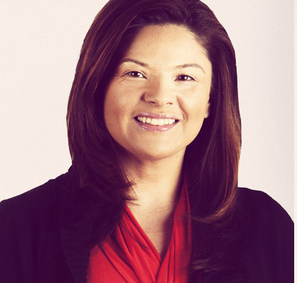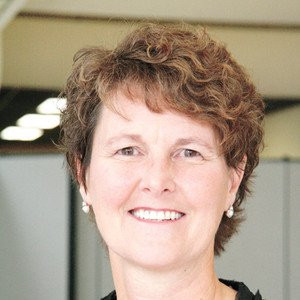Julia Steiny: 2014 – When All Students Were Supposed To Be Equal
Wednesday, January 01, 2014
NCLB requires states, schools, and school districts, to ensure all students are proficient in grade-level reading and math by 2014.
I figured Cheek was referring to the late 2001 Congressional passage of reams of changes to the Elementary and Secondary Education Act (ESEA). The new monstrosity was No Child Left Behind (NCLB). Like most American-education reform, it had very little to do with children, never mind how they learn.
He looked up, saw me and snarled that we were being set up for failure. While 2014 seemed comfortably far off at the time, Cheek was quite sure states and schools couldn't lockstep all children in all schools so that by 2014 they'd all be "proficient," per the mandate of the new federal law. Given how clueless that mandate was, could schools make any academic progress at all? He accurately predicted widespread cheating on tests. He predicted that the states would set their cut scores with pathetically low goals to protect schools from being labeled failures. Cheek he had no patience with bad teachers, curricula or leadership. But the law was all stick, no carrot, threatening under-performing schools with increasing sanctions. Common sense argues that setting an unreachable goal will not inspire anyone's best work.
GET THE LATEST BREAKING NEWS HERE -- SIGN UP FOR GOLOCAL FREE DAILY EBLASTI wasn't taking notes, but at the end of his rant, he barked, "And you can quote me."
So here we are: 2014. My, how time flies. What did we learn?
I learned two things. The first is that having good data is really useful. The results of the NCLB tests were disaggregated by race, gender and poverty, so the world could see if any kids were being discriminated against. (They were.) NCLB forced all states to collect much better data on their students, so people like me can now see the education landscape with increasingly clarity. If you know what you're doing, "anchoring" statistics can verify the quality of statistics. All facts are friendly. Having good facts helps us help kids.
Ah, but do we actually want to help children? I ask because the second big take-away from NCLB, to my mind, is that it proved that we'll never be able to punish students or schools into improvement. Won't happen.
Maybe only a researcher like Cheek fully understood the impossibility of arriving at nirvana in 2014. But along with pretty much everyone, he hated the punitive approach built into the law. As a compulsive reader of international education and child welfare news, I can tell you that American culture is unique in its faith in punishment as a solution to problems. We believe in bad kids and bad schools that should just be eliminated if we can't somehow beat their badness out of them.
Kids behave badly if no one teaches them the rules, or helps them learn community-appropriate habits. Or they misbehave as a way of flagging trouble of some kind, at home, among bullies, academic struggles, or whatever. There are no bad kids, only bad behaviors. No evidence shows that loveless, alienating, retributive discipline produces anything but rotten academic achievement.
Similarly, punishing under-performing schools abdicates responsibility for getting at the root of why they're producing such bad results. Generally, bad schools are horribly organized or governed. For example, school labor and management personnel often have conflicting goals, focusing attention on the interests of the adults. When adults fight, punishing one another for this and that, student achievement suffers.
Under NCLB, schools labeled bad, however euphemistically, had to send letters home to parents confessing and explaining their scarlet "F." Continued poor performance forced them to divert their precious Title 1 funds -- for the free-lunch kids -- to educational-support agencies of dubious quality, anointed by the feds, like corporate tutoring companies. NCLB gave states a taste for publicly grading their schools for an annual naming-and-shaming exercise, as if the students in the building didn't get chewed up in the process.
Such mean behavior isn't built into the Common Core, the newest massive education movement. Let's see if we can manage to use the data for something more positive this time around.
Still, I wish America could see how mean it is to its kids. How can smart adults not see that their desire to help kids become "globally competitive" is an adult wish? What kids want and need is attention, kindness, safety and help -- long before they get near any desire to beat out Korea and Finland. Kids need clear consequences for their foolish actions, like letting them get an "F" when they deserve one. But they don't need punishment. And neither do the schools.
It's 2014, and the kids aren't in significantly better shape than they were in 2001. They didn't become proficient because frightened school personnel force-fed them test-prep. Punishment didn't work. It was a dismal failure. In 2014, the question before us is: what will work? Only, let's be honest this time.
Julia Steiny is a freelance columnist whose work also regularly appears at EducationNews.org. She is the founding director of the Youth Restoration Project, a restorative-practices initiative, currently building demonstration projects in Rhode Island. She consults for schools and government initiatives, including regular work for The Providence Plan for whom she analyzes data. For more detail, see juliasteiny.com or contact her at [email protected] or c/o GoLocalProv, 44 Weybosset Street, Providence, RI 02903.
Related Slideshow: RI Experts on the Biggest Issues Facing Public Education
On Friday November 22, the Hassenfeld Institute for Public Leadership at Bryant University, the Latino Policy Institute of Roger Williams University, the Rhode Island Association of School Committees, the Providence Student Union, and RI-CAN: Rhode Island Campaign for Achievement Now will host Rhode Island leaders in the public and nonprofit sectors for a symposium on "the civil rights issue of the 21st century, adequacy and equity and the State of Education in Rhode Island."
Weighing in on the the "three biggest factors" facing education in the state today are symposium participatnts Gary Sasse, Founding Director of the Hassenfeld Institute for Leadership; Christine Lopes Metcalfe, Executive Director of RI-CAN; Anna Cano-Morales, Chairwoman of the Board of Trustees, Central Falls Public Schools and Director, Latino Policy Institute at Roger Williams University; Tim Duffy, Executive Director, RI Association of School Committees; and Deborah Cylke, Superintendent of Pawtucket Public Schools.
Related Articles
- Julia Steiny: Careful What You Want & How You Measure Getting It
- Julia Steiny: A Smart Way To Engage Math-Haters
- Julia Steiny: Best Beach Read—Paul Tough’s ‘How Children Succeed’
- Julia Steiny: Bring Back The ‘C’ Grade
- Julia Steiny: Bringing Kids In Trouble Back From The Brink













